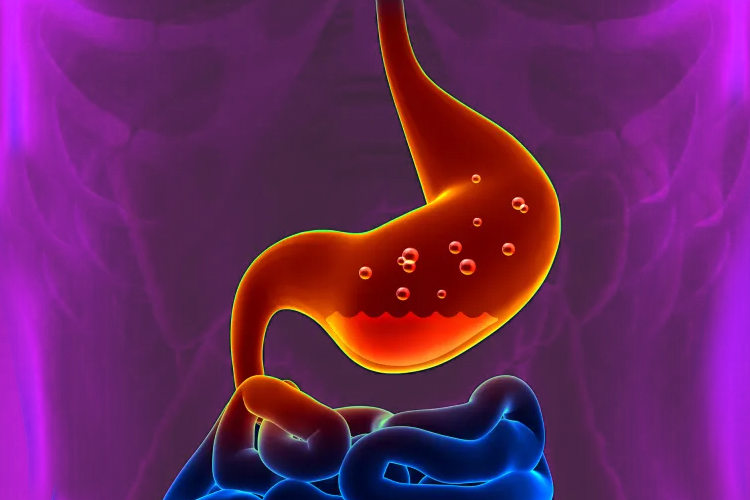Causes of esophagitis
Causes of esophagitis

What is Esophagitis
Esophagitis is a condition that affects the lining of the esophagus, the tube that carries food from the mouth to the stomach. It occurs when the lining of the esophagus becomes irritated or damaged due to various factors, leading to pain and difficulty swallowing. This condition can be uncomfortable and may lead to complications if left untreated.
Types of Esophagitis
Esophagitis can be divided into several types, depending on its cause:
- Reflux Esophagitis: Caused by the backflow of stomach acid into the esophagus, leading to irritation.
- Infectious Esophagitis: Occurs due to viral, bacterial, or fungal infections, often in individuals with weakened immune systems.
- Drug-Induced Esophagitis: Caused by certain medications that irritate the lining of the esophagus.
- Eosinophilic Esophagitis: A chronic condition resulting from a high concentration of white blood cells (eosinophils) in the esophagus, often associated with food allergies.

Causes of Esophagitis
Several factors may lead to esophagitis, including:
- Acid Reflux: The most common cause of esophagitis, where stomach acid backflows into the esophagus.
- Infections: Viruses, bacteria, and fungi can cause esophagitis.
- Certain Medications: Some medications, such as antibiotics and painkillers, can irritate the esophagus.
- Food Allergies: Certain foods that cause allergies may lead to esophagitis.
- Chemical Injuries: Ingestion of harmful chemicals or very hot beverages can damage the lining of the esophagus.
Symptoms of Esophagitis
Common symptoms of esophagitis include:
- Chest pain, especially during or after eating.
- Difficulty swallowing, where the person feels it is hard to swallow food or drinks.
- Burning sensation or heartburn in the chest.
- Nausea or vomiting.
- Sore throat and hoarseness in some cases.
Complications of Esophagitis
If untreated, esophagitis may lead to complications such as:
- Esophageal Stricture: Chronic inflammation can lead to narrowing of the esophagus, making swallowing difficult.
- Esophageal Ulcers: Ulcers may form on the esophageal lining due to continuous irritation.
- Increased Risk of Esophageal Cancer: Particularly in cases of long-term, untreated esophagitis.
How to Prevent Esophagitis
To maintain esophageal health and avoid inflammation, consider the following preventive measures:
- Weight management: Excess weight can increase pressure on the stomach, leading to acid reflux.
- Avoid spicy and fatty foods: These can increase stomach acid.
- Avoid foods that trigger allergies if you have known food allergies.
- Quit smoking and limit alcohol: Both can increase the risk of esophageal irritation.
- Proper medication use: Avoid lying down immediately after taking medications.
When to See a Doctor
You should consult a doctor if you experience persistent symptoms of esophagitis or if you notice any of the following symptoms:
- Severe chest pain or difficulty breathing.
- Vomiting blood or blood in the stool.
- Unexplained weight loss.
- Severe difficulty swallowing.
Home Remedies for Esophagitis
Some home remedies may help ease symptoms, such as:
- Eating small, frequent meals to reduce pressure on the stomach.
- Elevating the head while sleeping to reduce acid reflux.
- Avoiding trigger foods like citrus and carbonated drinks.
- Drinking plenty of water with medications to minimize irritation.
The Difference Between Esophagitis and Acid Reflux
While esophagitis is an inflammation of the esophageal lining caused by various factors, acid reflux is the condition where stomach acid backs up into the esophagus, which can lead to irritation and inflammation over time. Chronic acid reflux can lead to esophagitis, linking the two conditions.
Psychological Symptoms of Acid Reflux
Some people experience psychological symptoms associated with acid reflux, such as anxiety, stress, and sleep disturbances, as the physical discomfort can increase emotional stress, worsening the symptoms.
What Causes Esophagitis?
Esophagitis results from several factors, including acid reflux, infections, medications, or food allergies.
Can Esophagitis Be Cured?
Yes, esophagitis can be cured with appropriate treatment and by avoiding triggers, although some cases may require long-term management to prevent recurrence.
Foods to Avoid with Esophagitis
It is recommended to avoid spicy, acidic, fatty foods and carbonated drinks, as these can exacerbate symptoms
Also Read:Stages of Stomach Cancer
